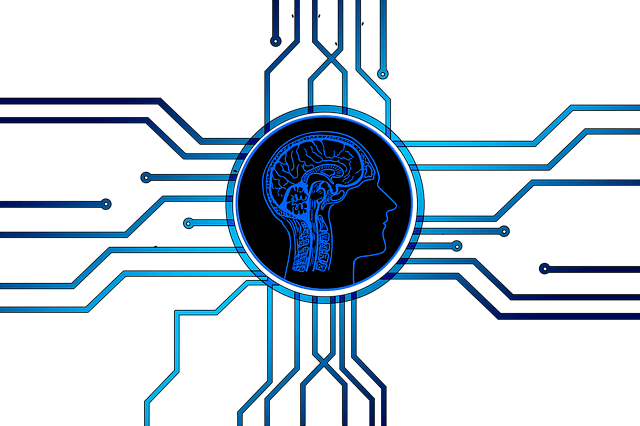Jobs in the future: Be ready for career revolution!
Introduction
It is well known that the COVID-19 pandemic triggered unprecedented challenges to the global economy, Job market as well as transformed Jobs in the Future. The impact of COVID-19 was huge, millions of jobs were lost worldwide and businesses were struggling to survive. Moreover, the aftermath of COVID-19 on the work culture and the employment opportunities as a whole are undergoing significant transformations. Even same concept is applied to businesses, the way of operating many businesses is transformed towards more digital-friendly. Furthermore, the rise of artificial intelligence (AI) is adding another layer of complexity to the future of jobs.
In this article, we are going to explore the effect of COVID-19 and AI on shaping the employment landscape and what it means for workers and industries.

The Impact of COVID-19 on Job Disruptions:
The COVID-19 pandemic has caused severe disruptions across various industries, leading to job losses and heavy layoffs. Some of the sectors such as travel, hospitality, and retail have been hit hardest, which leads businesses to close down or downsize their workforce. This sudden and severe economic downturn left millions of workers unemployed or underemployed.
Revolutionary Digital Transformation:
Working with COVID-19 conditions set a new normal, where remote work has become the standard operating procedure for companies worldwide, businesses invested their resources to rapidly accelerated their digital transformation efforts. This phenomenon has led to a significant shift in the demand for cutting-edge video conferencing and collaboration tools. Furthermore, the growing reliance on remote work has created an urgent need for specialized roles in remote work facilitation, cybersecurity, and digital marketing, offering exciting job opportunities for professionals in these fields.
Automation and Job Replacement:
As businesses always aim to cut running costs and increase efficiency, automation technologies have gained much attention. AI-powered systems and robots are being deployed to perform tasks previously done by humans. Therefore, Jobs in manufacturing, customer service, and data entry are increasingly being automated day by day, posing challenges for workers in those fields.

The Rise of AI in the Workplace
Increased Efficiency and Productivity: Now it is well known that AI has the potential to revolutionize the way we work by streamlining processes and increasing productivity. With the advent of supercomputers and AI, Machine learning algorithms developed to analyze large amounts of data and provide valuable insights, enabling businesses to make data-driven decisions. This efficiency boost can lead to the creation of new job roles centered around AI implementation and management.
The Impact of AI on Jobs:
Rather than completely replacing human workers, AI is expected to enhance capabilities and bring a transformation in the job market. One notable example is the adoption of AI-powered chatbots, which excel at handling customer queries, thus allowing humans to focus on more complex and demanding tasks. As the integration of AI systems becomes increasingly prevalent, workers will need to adapt, reskill, and foster effective collaboration with these technologies to thrive in the evolving job landscape.
Ethical and Regulatory Considerations:
The rise of AI also raises the importance of ethical and regulatory considerations. Ensuring that AI systems are unbiased, transparent, and accountable is crucial. There is a growing demand for professionals with expertise in AI ethics, privacy, and legal frameworks to address these concerns.
Navigating the Future with Essential Skills:
In this rapid technological advancements era, the ability to adapt and learn new skills has become indispensable. Continuous learning and upskilling are essential for workers to stay relevant and agile in the ever-evolving job market. Employers are placing a greater emphasis on soft skills, including critical thinking, creativity, and emotional intelligence, as these qualities enable individuals to navigate complex challenges and foster innovation.
The Significance of Digital Literacy:
As digital technologies spread to all aspects of our society, the need for digital literacy has transcended, its previous status was as an option but now become a requisite skill. In today’s job market, basic proficiency in operating digital tools and machinery has become a fundamental expectation across various job roles. Simultaneously, specialized tech skills such as data analysis, coding, and AI programming have emerged as highly in-demand capabilities that can unlock numerous opportunities in the rapidly evolving digital domain.
Human-Centric Skills:
While AI and automation take on repetitive and standardized tasks, the importance of human-centric skills cannot be overstated. Empathy, the ability to understand and connect with others, problem-solving prowess, the art of finding innovative solutions, collaboration, the skill of working effectively with diverse teams, and leadership, the ability to guide and inspire others, are among the invaluable human skills. Jobs that involve complex social interactions and rely on emotional intelligence are less likely to be replaced by AI, as these tasks require the nuanced understanding and adaptability that only humans can offer.
Conclusion
The Dynamic Interplay of COVID-19 and AI in Shaping the Jobs in the Future: The combined forces of COVID-19 and AI are reshaping the employment landscape in profound ways. The pandemic has acted as a catalyst, accelerating digital transformation and introducing considerable disruptions to the employment landscape. Meanwhile, AI is revolutionizing industries with its ability to enhance efficiency, automate tasks, and drive productivity gains.
However, alongside these advancements, concerns about job displacement and ethical considerations have surfaced. As we progress into the future, individuals and organizations must embrace adaptability, cultivate a culture of lifelong learning, and establish a harmonious relationship between humans and AI. This collaboration will unlock the full potential of technology while ensuring that human skills and values remain at the core of the evolving Jobs in the Future.
Will AI completely replace the human workers?
While AI has the potential to automate certain job tasks, it is unlikely to completely replace human workers. Instead, AI is more likely to augment human capabilities and transform job roles, requiring workers to develop new skills and collaborate effectively with AI systems.
What are the key skills needed for the future job market?
The future job market will require skills such as digital literacy, critical thinking, creativity, emotional intelligence, and specialized tech skills like data analysis and coding. Additionally, human-centric skills like empathy and problem-solving will be highly valuable.
How can workers prepare for the changes brought by COVID-19 and AI?
Workers can prepare for these changes by embracing lifelong learning and continuously upskilling themselves. They should stay updated on industry trends, develop digital literacy and tech skills, and focus on cultivating human-centric skills that are less likely to be automated.
What are the ethical considerations associated with AI in the workplace?
Ethical considerations related to AI in the workplace include issues of bias, privacy, transparency, and accountability. Ensuring that AI systems are fair, unbiased, and transparent is crucial. Professionals with expertise in AI ethics, privacy, and legal frameworks will play a crucial role in addressing these concerns.
How can businesses leverage AI to their advantage?
Businesses can leverage AI by adopting it strategically to enhance efficiency, productivity, and decision-making. This could involve implementing AI-powered systems for data analysis, automation of routine tasks, and improving customer experiences through chatbots and virtual assistants.
